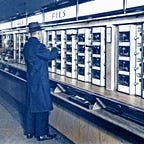Tracing Bob Dylan’s NYC Roots: White Horse Tavern, Webster Hall & the Folklore Center
‘New York Groove: An Inside Look at the Stars, Shows, and Songs That Make NYC Rock’ Book Excerpt
A Complete Unknown, a film that follows the dawn of Bob Dylan’s career after the 19-year-old Minnesotan arrived in New York City, is now being filmed around town. In an excerpt from the book New York Groove: An Inside Look at the Stars, Shows, and Songs That Make NYC Rock, we look back at some of Dylan’s memorable downtown spots.
Please do not highlight.
White Horse Tavern, 567 Hudson Street
New York magazine called the White Horse Tavern a “nostalgic high temple of the Alcoholic Artist.” Opened in 1880, the White Horse was known more as a longshoremen’s bar until the 1950s, when writers and poets like James Baldwin, Allen Ginsberg, and Jack Kerouac gathered in the evenings. Welsh poet Dylan Thomas took his last drink here; after a long night of imbibing on Nov. 9, 1953, he collapsed and later died.
Bob Dylan became a regular in 1961 when he came to see performances by the Clancy Brothers, an Irish folk group that frequented the White Horse. Other musicians who favored the bar were Joan Baez and Jim Morrison.
Folklore Center, 110 MacDougal Street
Izzy Young opened the Folklore Center in 1957. The shop sold instruments, books, records, sheet music, and folk music magazines like Gardyloo and Sing Out! The Center became a hangout for folk musicians who jammed, played concerts, and traded job prospects. “I began hanging out at the Folklore Center, the citadel of Americana folk music,” Bob Dylan wrote in Chronicles: Volume One of his arrival in New York in 1961. “The small store was up a flight of stairs and the place had an antique grace. It was like an ancient chapel, like a shoebox-sized institute.”
Young moved the Center to 321 Sixth Avenue in 1965. Musicians who visited the Center included Joni Mitchell, John Sebastian, Dave Van Ronk, Emmylou Harris, Tim Buckley, and Tom Paxton. Young closed the shop in 1973 and moved to Sweden. Young died in 2019.
Webster Hall, 125 East 11th Street
Webster Hall has had many identities since it opened in 1886 as a “hall for hire,” hosting weddings, dances, labor rallies, and concerts. In the early twentieth century the hall, in what is now the East Village, was called the “devil’s playground” for its masquerade balls that featured outlandish costumes. Prohibition couldn’t slow the good times, as Webster Hall became a speakeasy.
RCA Records periodically used Webster Hall as its East Coast recording studio from 1953–1968. Frank Sinatra, Ray Charles, Tony Bennett, and Liza Minnelli recorded here; Bob Dylan made one of his earliest studio recordings, playing harmonica on Harry Belafonte’s “Midnight Special” in February 1962. Elvis Presley recorded “Hound Dog” — after 31 takes — and “Don’t Be Cruel” on July 2, 1956.
Webster Hall became a rock venue when it opened as the Ritz in 1980. The Ritz moved to the site of the former Studio 54 in 1989. In 1992 Webster Hall was reborn as a dance club with rock music upstairs. Webster Hall was designated a New York City landmark in 2008. The venue presented Sonic Youth, John Mayer, Buzzcocks, Metallica, Green Day, Lenny Kravitz, and Modest Mouse in concert.
New ownership closed Webster Hall in 2017 for extensive renovations. It reopened in April 2019 with a concert by Jay Z, followed by Patti Smith, Lil Nas X, and MGMT.
Frank Mastropolo is the author of New York Groove: An Inside Look at the Stars, Shows, and Songs That Make NYC Rock and Fillmore East: The Venue That Changed Rock Music Forever.
